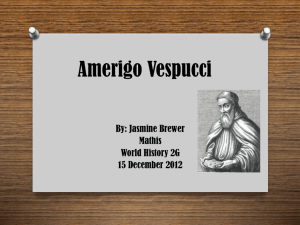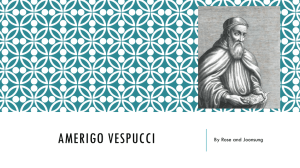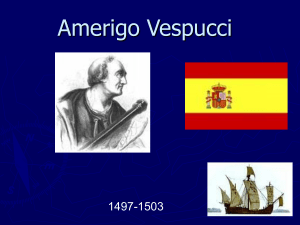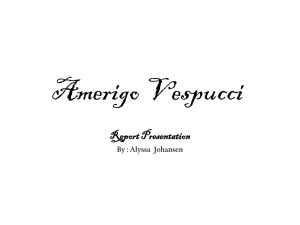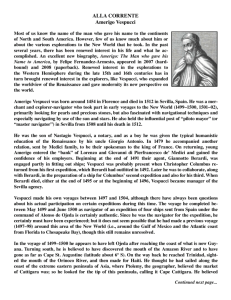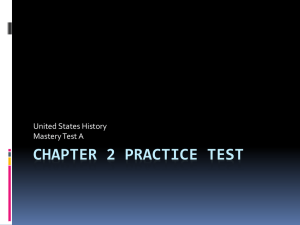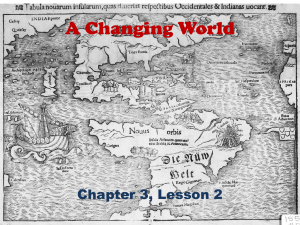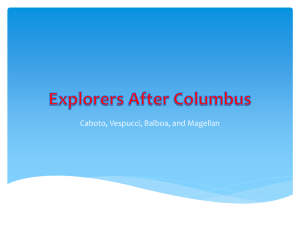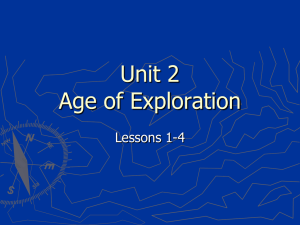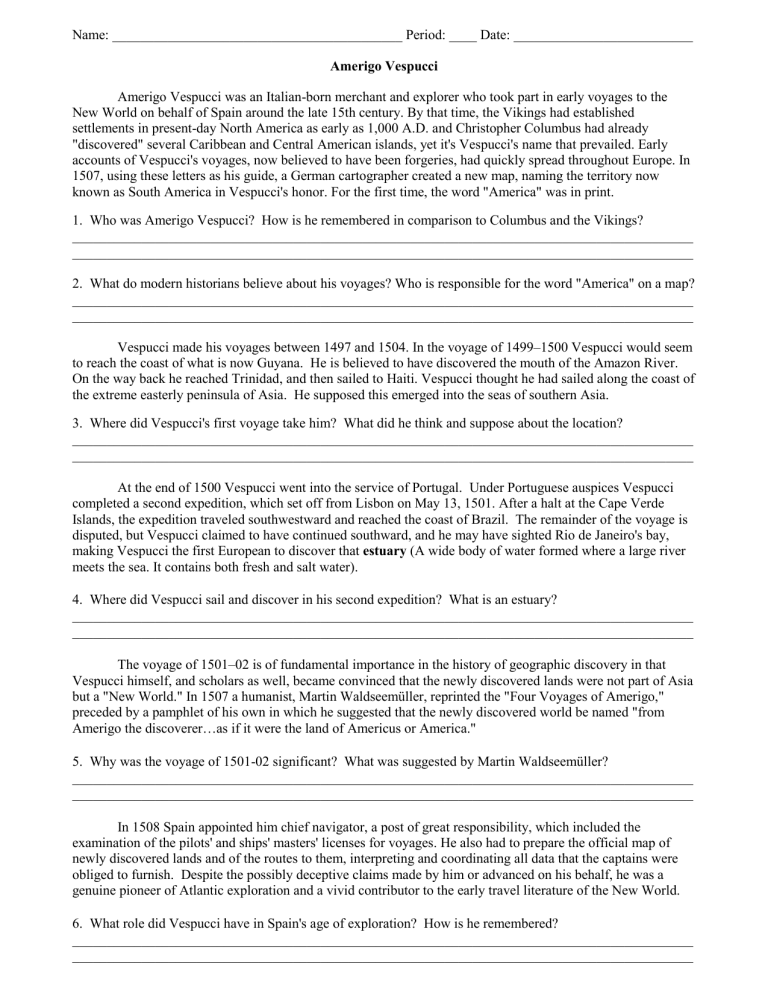
Name: __________________________________________ Period: ____ Date: __________________________ Amerigo Vespucci Amerigo Vespucci was an Italian-born merchant and explorer who took part in early voyages to the New World on behalf of Spain around the late 15th century. By that time, the Vikings had established settlements in present-day North America as early as 1,000 A.D. and Christopher Columbus had already "discovered" several Caribbean and Central American islands, yet it's Vespucci's name that prevailed. Early accounts of Vespucci's voyages, now believed to have been forgeries, had quickly spread throughout Europe. In 1507, using these letters as his guide, a German cartographer created a new map, naming the territory now known as South America in Vespucci's honor. For the first time, the word "America" was in print. 1. Who was Amerigo Vespucci? How is he remembered in comparison to Columbus and the Vikings? __________________________________________________________________________________________ __________________________________________________________________________________________ 2. What do modern historians believe about his voyages? Who is responsible for the word "America" on a map? __________________________________________________________________________________________ __________________________________________________________________________________________ Vespucci made his voyages between 1497 and 1504. In the voyage of 1499–1500 Vespucci would seem to reach the coast of what is now Guyana. He is believed to have discovered the mouth of the Amazon River. On the way back he reached Trinidad, and then sailed to Haiti. Vespucci thought he had sailed along the coast of the extreme easterly peninsula of Asia. He supposed this emerged into the seas of southern Asia. 3. Where did Vespucci's first voyage take him? What did he think and suppose about the location? __________________________________________________________________________________________ __________________________________________________________________________________________ At the end of 1500 Vespucci went into the service of Portugal. Under Portuguese auspices Vespucci completed a second expedition, which set off from Lisbon on May 13, 1501. After a halt at the Cape Verde Islands, the expedition traveled southwestward and reached the coast of Brazil. The remainder of the voyage is disputed, but Vespucci claimed to have continued southward, and he may have sighted Rio de Janeiro's bay, making Vespucci the first European to discover that estuary (A wide body of water formed where a large river meets the sea. It contains both fresh and salt water). 4. Where did Vespucci sail and discover in his second expedition? What is an estuary? __________________________________________________________________________________________ __________________________________________________________________________________________ The voyage of 1501–02 is of fundamental importance in the history of geographic discovery in that Vespucci himself, and scholars as well, became convinced that the newly discovered lands were not part of Asia but a "New World." In 1507 a humanist, Martin Waldseemüller, reprinted the "Four Voyages of Amerigo," preceded by a pamphlet of his own in which he suggested that the newly discovered world be named "from Amerigo the discoverer…as if it were the land of Americus or America." 5. Why was the voyage of 1501-02 significant? What was suggested by Martin Waldseemüller? __________________________________________________________________________________________ __________________________________________________________________________________________ In 1508 Spain appointed him chief navigator, a post of great responsibility, which included the examination of the pilots' and ships' masters' licenses for voyages. He also had to prepare the official map of newly discovered lands and of the routes to them, interpreting and coordinating all data that the captains were obliged to furnish. Despite the possibly deceptive claims made by him or advanced on his behalf, he was a genuine pioneer of Atlantic exploration and a vivid contributor to the early travel literature of the New World. 6. What role did Vespucci have in Spain's age of exploration? How is he remembered? __________________________________________________________________________________________ __________________________________________________________________________________________
